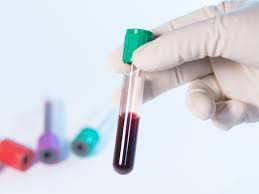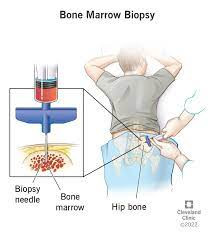Definition
G6PD refers to the enzyme Glucose-6-Phosphate Dehydrogenase, which plays a critical role in maintaining red blood cell stability and preventing their breakdown, a process known as hemolysis. Hemolysis leads to the rupture of red blood cells and the release of hemoglobin from the cells.
This enzyme also protects cells, particularly red blood cells, from damage caused by free radicals. Red blood cells are highly vulnerable to free radicals, and without adequate G6PD protection, they undergo faster destruction than the body can replace, potentially leading to hemolytic anemia.
The G6PD test is a blood analysis designed to measure G6PD levels. It is commonly used to identify G6PD deficiency, a genetic condition that results in reduced red blood cell count or anemia. In newborns, G6PD testing is often conducted for those exhibiting jaundice.
Indications
A doctor may recommend this test if there are signs of hemolytic anemia, such as:
- Extreme fatigue and weakness
- Pale complexion
- Difficulty breathing
- Accelerated heartbeat
- Yellowing of the skin and eyes (jaundice)
- Dark-colored urine
- Abdominal and back pain
Newborns require G6PD test if jaundice persists beyond two weeks or if other underlying conditions cannot explain the symptoms. A family history of G6PD deficiency also warrants testing in infants.
Contraindications
G6PD test is generally safe, with moderate associated risks. There are no notable contraindications specific to neonatal G6PD test. The procedure is similar to standard blood sampling. Consult your healthcare provider for details about the procedure.
Preparation Prior to Test
No specific preparation is necessary before undergoing a G6PD test.
Test Procedure
G6PD test involves collecting a blood sample. In newborns, the blood is typically drawn from the heel. If blood is drawn from a vein, the area is first sterilized with antiseptic, and a tourniquet is applied to increase blood flow. A needle is then inserted into the vein to collect the sample in a syringe or vial.
Once the sample is taken, the tourniquet is removed, and the puncture site is covered with a bandage. The blood sample is then sent to a laboratory for analysis, which may take a few days to yield results. The procedure is minimally invasive, simple, and typically completed within five minutes.
Normal and Abnormal Values
The normal range for G6PD levels in newborns is between 7.0–24.7 units per gram of hemoglobin. However, results may vary depending on the laboratory.
Results and Recommendations (Follow-Up Tests)
Low
A low G6PD level indicates enzyme deficiency in the blood. Most individuals with G6PD deficiency experience no symptoms. Avoiding specific triggers can help prevent hemolytic anemia. Common triggers include certain medications like aspirin, acetaminophen, some antibiotics, antimalarial drugs, and fava beans.
Normal
Normal test results suggest adequate levels of the G6PD enzyme. Maintain overall health through balanced nutrition, regular physical activity, and routine medical check-ups.
Consult the Right Doctor
If your child's G6PD results are abnormal, consult a pediatrician for further evaluation and guidance on treatment options.
Looking for more information about laboratory, radiology, and other examination results? Click here!
- dr. Monica Salim
G6PD Test. (2022). Retrieved 24 July 2023, from https://my.clevelandclinic.org/health/diagnostics/
G6PD Test. (2022). Retrieved 24 July 2023, from https://medlineplus.gov/lab-tests/g6pd-test/
What is the G6PD Test?. (2021). Retrieved 24 July 2023, from https://www.webmd.com/a-to-z-guides/what-is-g6pd-test
Glucose-6-Phosphate Dehydrogenase. (2022). Retrieved 24 July 2023, from https://www.urmc.rochester.edu/encyclopedia/content.aspx?contenttypeid=167&contentid=g6pd
G6PD. (2021). Retrieved 24 July 2023, from https://www.testing.com/tests/g6pd/











